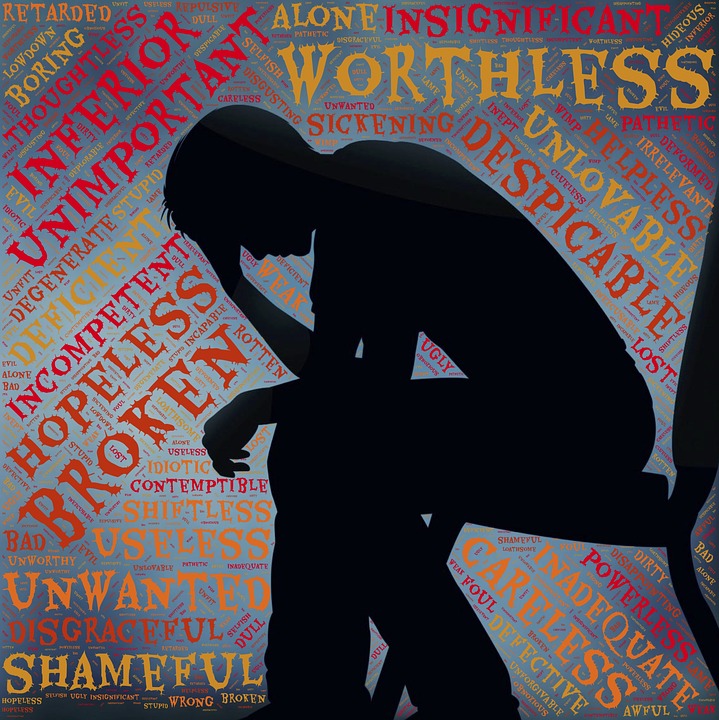Why Feeling Useless is Fruitless
When I got married last year, everything was going great. I started a new job a few months before and started earning more money. My husband had just gotten a raise at his job as well. We were both in school and working, so we were on the same page and financially we were doing well. Then in December I graduated, and because I graduated I could no longer work my on-campus job and I had to find a new one.
Eventually, I was able to get a part-time job and an internship, but it was unclear when my job would start. All of this cumulated with my husband starting a new semester and me feeling useless.
Added to this feeling of uselessness was the fact that I had to start working. We were doing okay, but savings were running low and my income was more important than ever. The day before my husband started school, I was in a panic. In fact, I had not one, put two panic attacks that day.
I felt like I was letting my husband down by staying home and not working while he went to school and work the next day. There I was, just there sucking up resources while he did all the hard work. I wanted so desperately to help, but so much was out of my hands.
My husband, being the supportive and kind man that he is, told me I wasn’t useless and that everything would be fine. He helped me make a list of things to do the next day so I wouldn’t feel useless. I was going to go to the store. Clean the house. Visit his sister. Fix the headlight. All of these things.
I am a Lump
 And the next day I couldn’t so any of them.
And the next day I couldn’t so any of them.
If you have ever had a panic/anxiety attack, then you know that when the crying is done, things aren’t over. The terrible feelings stay with you for a time. So when my husband walked out the door that morning, I was in a haze.
I sat on the couch and my body felt like it weighed a million pounds. I barely had the energy to lift my head—there was no way that list was getting done. And the fact that I couldn’t do anything made the feeling of uselessness even worse. I was a lump and that was pretty much it.
So by the end of the day, I was left feeling the same as when the day started.
Then something changed. My employer contacted me and told me to come in the next day. Finally, I could start contributing to my family and not be a useless lump.
But here’s the thing, I was never a useless lump. I was always trying and doing what I could, even when my actions were fruitless. It was me that put these expectations on myself, and then when I failed, I felt like I failed everyone. It was almost like I was punishing myself before anyone else could.
In reality, my husband would never have told me I was being useless or wasn’t contributing. He knew how hard I worked to find a job and that it wasn’t my fault that things weren’t working how I expected them.
Awake My Soul and Stop Feeling Useless
 I recently found an Ensign article from 1973 called “‘Awake My Soul!’: Dealing Firmly with Depression,” by Steve Gilliland, and to be honest, I felt like it could have been given at the last general conference it is so relevant. In his article, Brother Gilliland talks about all the times people have come up to him (he was a branch president and Institute teacher) and told him that they feel worthless.
I recently found an Ensign article from 1973 called “‘Awake My Soul!’: Dealing Firmly with Depression,” by Steve Gilliland, and to be honest, I felt like it could have been given at the last general conference it is so relevant. In his article, Brother Gilliland talks about all the times people have come up to him (he was a branch president and Institute teacher) and told him that they feel worthless.
He takes their questions and addresses them, always coming back to the central theme that you are not alone in your feelings, and the Lord is there to help you—even when you feel helpless.
Brother Gilliland gives us two approaches to start changing our life around. “The first way to attack depression and feelings of inadequacy is to try to change what you’re doing so that you’ll feel better about yourself. The second way is to try to change your feelings about yourself so that it will be easier for you to do things differently. Both approaches are interrelated and both are important, but let’s talk about the second one mainly. It’s the one that gets overlooked.”
He then goes on to say that it is important to change our feelings because without changing how we feel about ourselves, then changing our actions will not have the same impact. Brother Gilliland says, “I’ve talked to people who have made significant positive changes—like giving up drinking and smoking—but they still feel discouraged about themselves.”
He then goes on to describe Nephi and the times that he felt discouraged.
“My heart exclaimeth: O wretched man that I am! Yea, my heart sorroweth because of my flesh; my soul grieveth because of mine iniquities. I am encompassed about, because of the temptations and the sins which do so easily beset me. And when I desire to rejoice, my heart groaneth because of my sins,” (2 Nephi. 4:17–19).
If someone as spiritually powerful as Nephi felt discouraged and depressed, I think it is okay to have those feelings about myself every once in a while. But the important part of Nephi’s story is that he worked through it.
“My God hath been my support; he hath led me through mine afflictions in the wilderness; and he hath preserved me upon the waters of the great deep. He hath filled me with his love, even unto the consuming of my flesh. He hath confounded mine enemies, unto the causing of them to quake before me,” (2 Nephi 4:20–22).
As Brother Gilliland continues, he gives more advice for fighting the voices in your head that tell you that you are useless. He also gives advice on how to apply these principles in our own lives. He even gives advice on what to do when you don’t know why you are depressed (which happens to me a lot).
So check out his talk, you won’t regret it. I know we all feel useless at times, and it hurts, and it sucks, and sometimes it feels like that feeling will never go away. Nobody should have to feel that way. So next time you feel like you are worthless, useless, or just a lump, take a moment to remember that everyone feels like that at times. Then remember that this too shall pass and that there are people willing to help you if you just ask.


